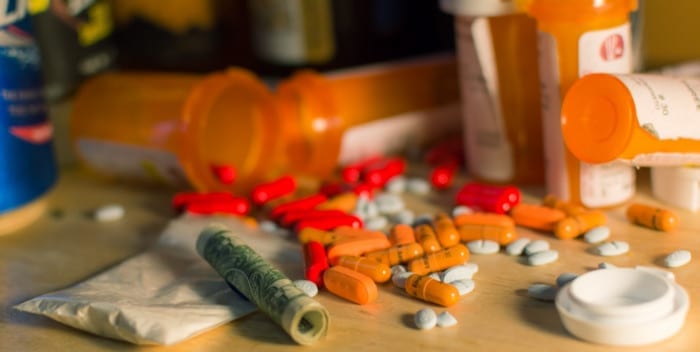Substance Abuse Among Athletes
By Savanah Baker and Jacy Johnston
Universities everywhere deal with the mixing of athletics and drug and alcohol use. Some schools deal with the two issues separately, while others handle them together.
The Concordia athletic department maintains, adjusts and applies its policy for its student athletes each year. During preseason presentations, this policy is critically important in establishing expectations for student athletes.
Concordia Athletic Director Devin Smith said via email, “The Bulldog Athletic Department has found that the policies in place best fit the desired outcome or goal for our student-athletes, individual athletic programs, athletic department as a whole, and university.”
Concordia is a dry campus. This means alcohol use and possession is prohibited for all students on campus grounds.
The athletic department’s policy aligns with the university’s policy. The Concordia Alcohol and Drug Education and Testing Policy states that CUNE does not permit the use of alcohol on-campus by any student, even students who are the legal drinking age.
While Concordia policy is non-tolerant, the National Association of Intercollegiate Athletics (NAIA) maintains a weaker stance on alcohol related issues.
The NAIA Official Policy and Handbook states that the use of alcohol, tobacco or tobacco products is not permitted by participants, coaches, cheerleaders, trainers, game administrators or officials in the playing areas during all NAIA-sanctioned competition and practices for such competition.
However, the NAIA does not enforce a policy on substance abuse, which includes drugs in addition to alcohol and tobacco.
The Official Policy and Handbook says, “Each institution will develop a philosophy statement which expresses the institution’s position on substance abuse as it relates to student-athletes, describes the institution’s substance abuse education program and delineates the institution’s program for evaluating the effectiveness of the education program.”
Concordia’s policy includes the implementation of random drug testing, which is not yet a required action by the NAIA.
“Random drug testing is becoming the norm within the Great Plains Athletic Conference and within the NAIA,” said Smith. “We adopted drug testing within our athletic department beginning in 2014 to be proactive.”
The Concordia Alcohol and Drug Education and Testing Policy outlines the procedure for random drug testing. Ten percent of each athletic team is randomly selected to undergo drug testing twice a year.
Although it is not required per NAIA rules, Smith endorsed Concordia’s implementation of the policy.
“[Concordia is] afforded the opportunity to create an environment that allows our institution to be uniquely Christ-centered,” Smith said. “It is just another step in the right direction to foster great character and inspire positive decision-making about what is ingested.”
Substance abuse exists at Concordia, but the Student Life Office said alcohol is a far more pressing issue than drugs.
Smith agreed.
“In my role I see that alcohol consumption by student-athletes no matter what time of year has created division, deceit, diversion and dysfunction for athletic teams and its members,” Smith said.
Concordia maintains a dry campus but alcohol consumption remains up to the students.
“Every student on this campus has a choice of whether they are going to consume alcohol or not on this campus,” Smith said. “One just needs to understand that if they decide to drink on campus then there are consequences.”
While on-campus policy is consistent for all enrolled student-athletes, off-campus policy falls under Nebraska’s state laws.
Nebraska state law prohibits underage drinking and keeps minors out of close proximity with people who are consuming alcohol legally. Minors can receive a minor in possession, or MIP, charge when they are drinking, or even when they are abstaining from alcohol but are in the presence of others who are drinking.
Smith said Concordia’s student athletes are well aware and highly educated about the Nebraska state laws as well as the university, athletic department and their respective team’s rules regarding alcohol consumption.
“If being a member of a Bulldog athletic program is a priority for the student-athletes, then they should remove themselves from situations,” Smith said.
“I really believe it is pretty simple, if you mess with fire you are eventually going to get burned,” Smith said. “Most importantly, it is well documented that the consumption of alcohol does not make one a better student and/or athlete.”












